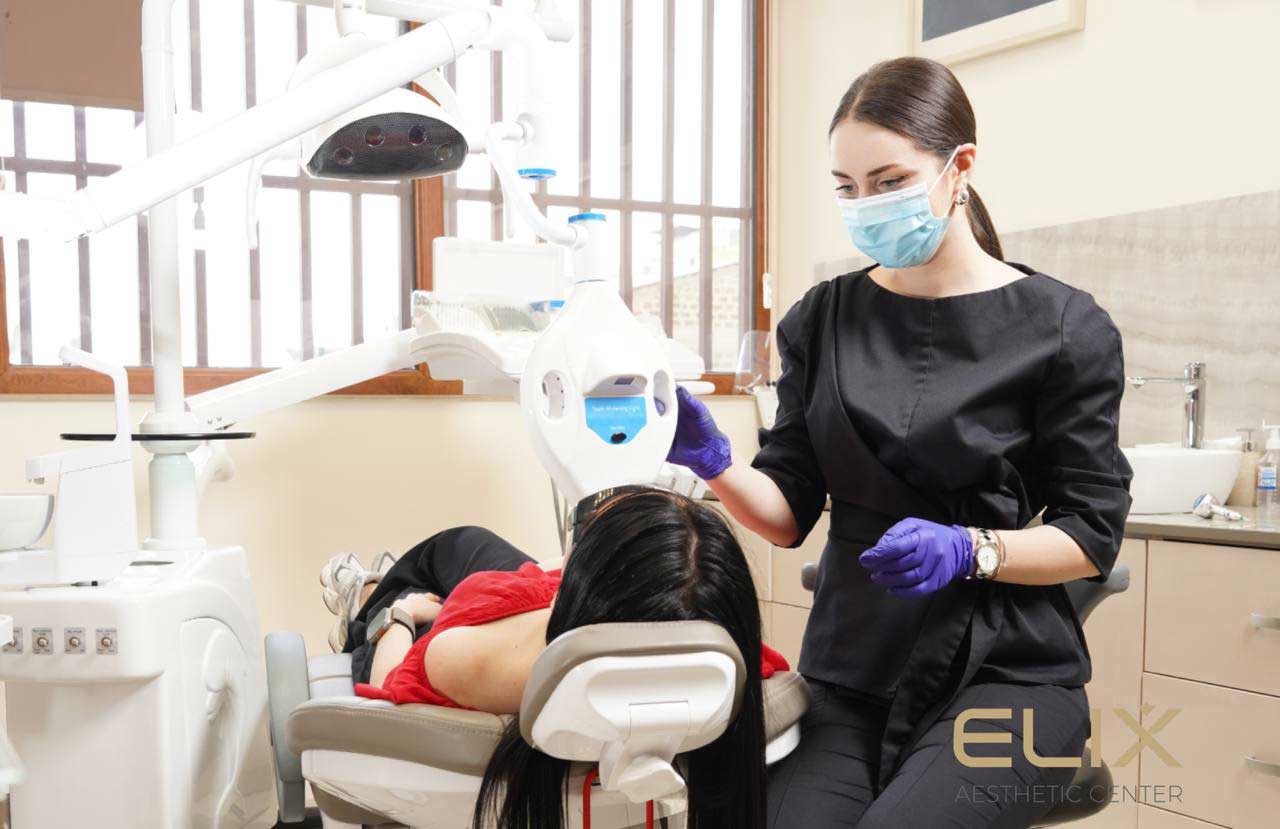
Teeth whitening
Teeth whitening at the dentist usually starts with an ultrasound cleaning. It effectively cleans the teeth from various residues as well as dental calculus. The cleaning is followed by the polishing process of the teeth, providing a smooth surface of the tooth enamel.
Ultrasonic cleaning does not harm the teeth or the whole organism, the removal of dental calculus from the tooth enamel only has a beneficial effect on the condition of the teeth.
Types of teeth whitening
Today, doctors can offer several whitening methods.
Air Flow – works out tooth enamel using the principle of sandblasting. Whitening is carried out using soda grains and water. Sandblasting under high pressure effectively cleans and whitens tooth enamel. After the first half-hour procedure, the teeth become whiter. However, this method is not suitable for those whose teeth have a lot of wear.
During Air-Flow cleaning, the teeth come to their natural light shade.
With Kappas - available both with and without hydrogen peroxide. This is a chemical effect on the teeth that has a visible result and whitens the teeth controllably. The dentist prepares kappas and gives a special material, which the patient wears to achieve the desired result. In other words, the question of how to whiten teeth at home is answered by this method.
Zoom is the most common type of teeth whitening offered at many dental clinics today. A special gel is applied to the tooth enamel, which is activated (fixed) by the lamp. This is a type of light whitening.
Laser system - the principle is similar to the previous two, but here the gel is activated more efficiently due to a denser beam of light. In addition, if the surface of the tooth heats up during the whitening process in other systems, but not here. This allows you to avoid nerve damage and keep your teeth healthy.
Contraindications for teeth whitening.
➤ hypersensitivity of the teeth
➤ the presence of fillings and crowns on the front teeth
➤ pregnancy
➤ allergic reactions, incompatibility of certain drugs
Whitening children's teeth is also not always useful, because at that age the enamel is not yet strong enough.
Can teeth hurt after a whitening procedure?
It depends on the degree of sensitivity of the teeth. In order to reduce the pain, it is recommended to use the means that reduce the sensitivity of the teeth. The dentist will choose a suitable option. What can not be done after whitening? Food and drink must be limited (tea, coffee, soda, soy sauce, chocolate are not allowed). No smoking allowed. It is necessary to maintain the hygiene of the teeth and brush on time with a brush of medium hardness.
Professional teeth cleaning at a dental clinic will help to maintain the whitening results as long as possible. It is recommended to carry out this procedure once a year.
Can pregnant women whiten their teeth?
The whitening procedure does not directly harm either mother or the fetus. However, it is not recommended to perform it during pregnancy, because women's bodies are weak, there is a lack of calcium, and it is not desirable to subject the teeth to additional procedures.


